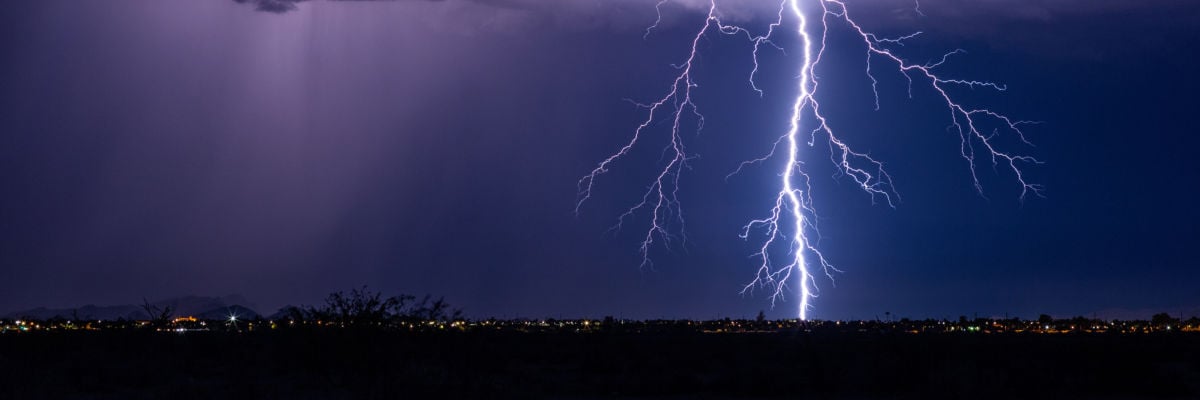
If there’s one thing that comes across in the Old Testament, it’s that disobeying God is a very, very bad idea. There’s eating from the forbidden tree of knowledge and good and evil (banishment from paradise), killing your brother (loss of a divine covenant), and looking back at a city being destroyed by fire and brimstone (death by salt). But there’s another form of disobedience frequent across the Old Testament that we don’t speak about nearly enough: creating human religious authorities outside divine sanction. If God’s displeasure in the Old Testament toward those who do such things is any indication of how bad of a sin this is, perhaps those currently ministering outside explicit divine approbation should take note.
Consider Korah, Dathan, and Abiram, who are described in Numbers 16:1-40 as revolting against Moses. In verse three, we read this:
They assembled themselves together against Moses and against Aaron, and said to them, “You have gone too far! For all the congregation are holy, every one of them, and the Lord is among them; why then do you exalt yourselves above the assembly of the Lord?” (v. 3).
In effect, these men were questioning Moses’ divinely given authority. Indeed, Moses rhetorically asks the rebels if they “seek the priesthood also” (v. 10).
From there, things don’t go well for Korah, Dathan, and Abiram. In the same chapter, Moses declares, “Hereby you shall know that the Lord has sent me to do all these works, and that it has not been of my own accord” (v. 28). Shortly thereafter,
the earth opened its mouth and swallowed them up, with their households and all the men that belonged to Korah and all their goods. So they and all that belonged to them went down alive into Sheol; and the earth closed over them, and they perished from the midst of the assembly (vv. 32-33).
In verse 40, God warns “that no one who is not a priest, who is not of the descendants of Aaron, should draw near to burn incense before the Lord, lest he become as Korah and as his company.” Trying to establish themselves as a competing religious authority to those chosen by God, Korah, Dathan, and Abiram and their families are unceremoniously annihilated.
This is not the only such episode in the Old Testament. In 1 Kings 13:33-34, we read of Jeroboam, the first of the Northern Kingdom of Israel:
After this thing Jeroboam did not turn from his evil way, but made priests for the high places again from among all the people; any who would, he consecrated to be priests of the high places. And this thing became sin to the house of Jeroboam, so as to cut it off and to destroy it from the face of the earth.
Knowing that he needs to establish an alternative religious authority to compete with the true priesthood of Judah (and the true temple in Jerusalem), Jeroboam decides to create his own priesthood, whose members minister not in the temple, but in “the high places,” a euphemism for pagan idolatrous practices. Indeed, in the previous chapter, we similarly read, “He also made houses on high places, and appointed priests from among all the people, who were not of the Levites (1 Kings 12:31). The Levites, remember, were the true, divinely sanctioned priesthood of the Jews.
In response to the Northern Kingdom’s religious rebellion, we learn in the next chapter that God determines to “bring evil upon the house of Jeroboam” and to “utterly consume the house of Jeroboam, as a man burns up dung until it is all gone. Any one belonging to Jeroboam who dies in the city the dogs shall eat; and any one who dies in the open country the birds of the air shall eat; for the Lord has spoken it” (1 Kings 14:10-11). And so it happens: after Jeroboam’s death, Ba′asha, a leader of a competing family, “killed all the house of Jeroboam; he left to the house of Jeroboam not one that breathed, until he had destroyed it” (15:29).
And then there are King Ahab’s priests of Baal, who try to duke it out with the prophet Elijah on Mount Carmel. Most are likely familiar with that story: the priests of Baal chant and dance and cut themselves from morning until night, asking their god to answer with fire (he never does). Elijah, in turn, prays to the Lord to consume with fire a sacrifice covered with water; the true God immediately answers. The incident ends: “And Elijah said to them, ‘Seize the prophets of Baal; let not one of them escape.’ And they seized them; and Elijah brought them down to the brook Kishon, and killed them there” (1 Kings 18:40).
In these three incidents, we see an obvious commonality: things do not turn out well for those who attempt to replace or compete with those commissioned by God to serve as his witnesses and authorities.
What should we learn from these ancient examples? It certainly doesn’t seem as if God is executing the same sort of immediate, violent judgments on such “rebels” today. Indeed, the era of the New Covenant appears to be defined by a salvation economy, where God operates less overtly and aggressively, manifesting a long-suffering willingness for those who pretend to possess divine authority, presumably in the hope of men’s conversions.
Nevertheless, the last two millennia would indicate that those who aim to establish competing religious authorities to those divinely commissioned (i.e., bishops) have not done so well. The history of the Church is littered with examples of heretical movements who have long since disappeared—think of the Donatists, Montanists, or Novatians.
What of the Protestants? Well, certainly some Protestant denominations still seem to have spiritual energy, but they are a movement with no principled means of adjudicating theological disagreements. That explains why, over the centuries, Protestant sects have split again and again—a sign of confusion, not clarity. In recent years, we have seen even the Methodists and Baptists divide over doctrine.
Things are more nuanced for Christian sects that retain a legitimate episcopacy or are in dialogue with the Vatican (e.g., the Orthodox, the SSPX). Things are less nuanced for those who are actively repudiating Holy Scripture as erroneous or not the pre-eminent doctrinal authority, as do many mainline Protestants.
In any case, we should all be grateful for God’s merciful patience that he’s no longer extending immediate judgment upon people who reject the authorities he has chosen to represent him. But that doesn’t mean he’s pleased . . . or indefinitely long-suffering.



